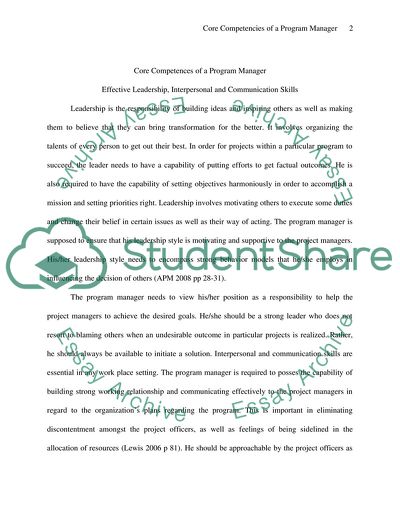Cite this document
(“What are the core competencies of a programme manager Essay”, n.d.)
Retrieved from https://studentshare.org/miscellaneous/1556407-what-are-the-core-competencies-of-a-programme-manager
Retrieved from https://studentshare.org/miscellaneous/1556407-what-are-the-core-competencies-of-a-programme-manager
(What Are the Core Competencies of a Programme Manager Essay)
https://studentshare.org/miscellaneous/1556407-what-are-the-core-competencies-of-a-programme-manager.
https://studentshare.org/miscellaneous/1556407-what-are-the-core-competencies-of-a-programme-manager.
“What Are the Core Competencies of a Programme Manager Essay”, n.d. https://studentshare.org/miscellaneous/1556407-what-are-the-core-competencies-of-a-programme-manager.


